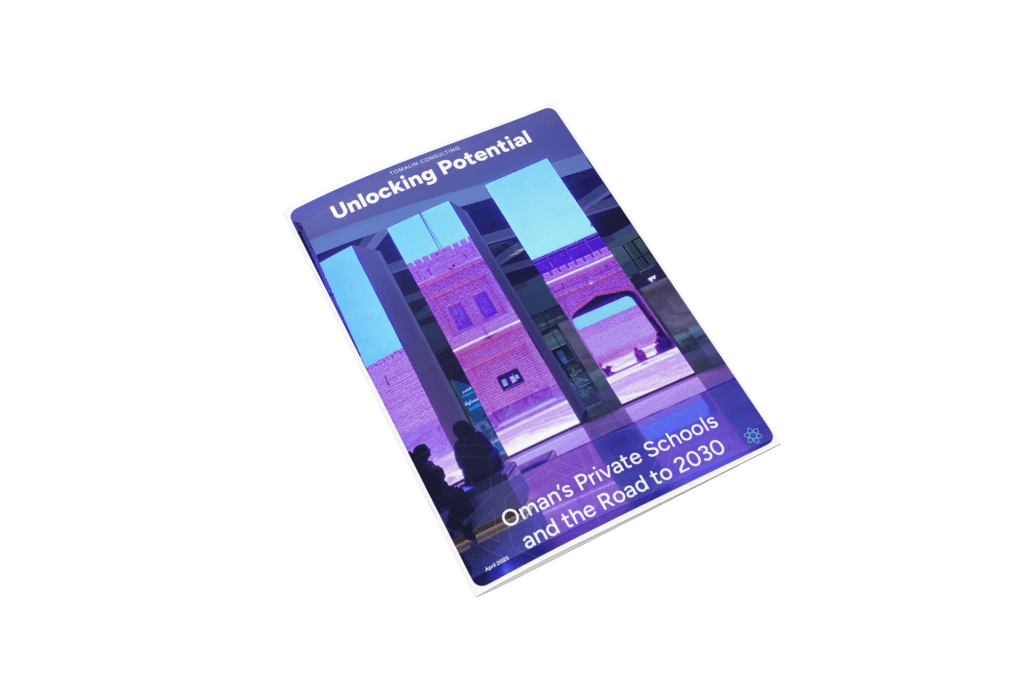
In Oman’s fast-evolving private education landscape, one truth stands above the rest: parents are the primary decision-makers—and their expectations are rising fast.
Gone are the days when reputation alone could guarantee strong enrollment. Today, families in Muscat and across Oman are becoming increasingly discerning. Whether they are expatriates comparing options across the GCC or first-generation Omani private school users stepping away from the public system, parents are asking sharper questions and demanding more from their children’s schools.
So, what do parents in Oman really want—and how can school leaders respond in a way that builds both trust and long-term enrolment strength?
Academic Excellence Is a Given—But Not the Only Thing
Academic results still matter. Parents want to see strong pass rates, university acceptances, and standardized test outcomes. But increasingly, these are seen as baseline expectations—not differentiators.
The report notes a shift in how parents assess “quality.” It’s no longer enough for a school to claim international accreditation or cite a few successful alumni. Families want evidence of rigorous teaching and learning across the board. This includes:
Frequent student progress tracking
Clear communication on assessment methods
Thoughtful feedback on both academic and personal development
Well-defined university and career pathways
They are also looking at faculty retention and teacher quality as proxies for long-term academic health. Schools that invest in stable, well-trained teaching teams and clearly showcase this to parents build credibility and peace of mind.
Holistic Development and Well-being Matter More Than Ever
Beyond academics, Omani families are placing greater importance on holistic education—an area that was once underappreciated in the local context but is now becoming a competitive battleground.
Parents are asking:
Does the school offer meaningful extracurriculars, not just box-ticking clubs?
Are students supported emotionally and socially?
Are there leadership opportunities, creative programs, sports and physical education?
The rise of well-being as a marker of school quality is significant. Particularly post-COVID, parents want reassurance that schools are attending to their children’s emotional needs—not just their grades. Counseling services, pastoral care systems, and inclusive classroom practices are becoming strong selling points.
In short, Oman’s private school market is shifting toward what might be called the “whole child promise.” Schools that understand this—and build structured programs around it—will stand out.
Bilingualism and Cultural Balance Are Critical
For Omani parents in particular, one of the top concerns is how well a school balances global education with local values.
There is strong demand for English fluency and international curricula, but not at the expense of Arabic language, Islamic studies, and cultural norms. Schools that strike the right balance—offering internationally benchmarked learning while maintaining Arabic identity—are thriving.
Bilingual schools that integrate Arabic and English instruction meaningfully (not just via separate language classes) are gaining ground. Moreover, cultural literacy—how well students understand and respect both Omani heritage and global perspectives—is becoming a core value for many parents.
This is especially true outside Muscat, where families may be more traditional but still ambitious for their children’s future. Schools that present themselves as global but grounded will find a receptive audience.
Facilities and Environment Still Influence First Impressions
The report rightly points out that school campuses matter—not as ends in themselves, but as expressions of care and investment. Parents often form lasting impressions based on:
Cleanliness, organization, and maintenance
Safety and security of the physical environment
Access to science labs, sports facilities, art studios, and libraries
Playground space and natural light (especially for younger children)
Interestingly, many parents are increasingly aware that flashy buildings do not guarantee educational quality. What matters is whether the facilities are purpose-built and used effectively. A well-equipped science lab is impressive—but a school that actually integrates it into project-based learning will leave a stronger impression than one that simply showcases it on a tour.
In areas like Salalah and Sohar, where school infrastructure has lagged, parents are particularly responsive to visible investment in learning spaces.
Communication, Trust, and Transparency
Perhaps the most overlooked—but essential—factor in parent decision-making is the quality of the relationship between the school and the family.
Parents want to feel that they are partners in the learning journey, not passive observers. That means schools must communicate frequently, respectfully, and transparently. Some of the most valued elements by parents include:
Regular updates on their child’s progress (academic and behavioural)
Accessible school leaders who listen and respond
Opportunities for parents to contribute (without being burdened)
Clear financial policies and fee transparency
One interesting insight from the report is how schools that weathered the pandemic well tended to be those with strong parent relationships. Trust—once built—becomes a buffer in times of uncertainty.
Differentiation in a Crowded Market
In Muscat especially, the report highlights the rise of school clusters—groups of schools that essentially compete within the same curriculum and fee tier. In these environments, the difference between a full Year 7 class and a half-empty one may come down to how well a school tells its story.
Parents are influenced by other parents. Word-of-mouth remains the most powerful marketing force. But that word-of-mouth is increasingly shaped by direct experience: whether the school delivers on what it promises.
This is where clear positioning matters. Is your school the creative one? The academic powerhouse? The one with strong values and discipline? The inclusive school? Schools that try to be everything to everyone rarely succeed. Those that define, deliver, and consistently communicate their niche are winning the trust of Omani families.
Conclusion: Listening Is a Competitive Advantage
If there’s one takeaway from the report’s analysis of parental expectations, it’s this: schools that listen win.
By building formal and informal feedback loops, surveying satisfaction, holding parent dialogues, and involving families meaningfully, school leaders gain insights that no market study can replicate.
In Oman’s competitive and maturing private education market, the parent voice is not just a source of pressure—it’s a strategic asset. Understanding what parents want, adapting thoughtfully, and delivering consistently is the most sustainable way to build enrolment and reputation.
And in a marketplace where new schools are still opening every year, that kind of trust is the difference between surviving and thriving.
Now download the full report…

6.3 MB PDF Download.
